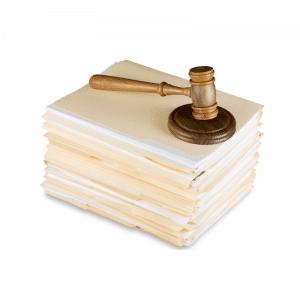End of Life Decisions
There are many decisions to make about the end of your life, perhaps especially while you are feeling well and healthy and can think clearly about the choices that you need to make. It is difficult, however, to make those when you’re unsure about all of the terminology involved. What is the difference between a will and a living will? What is a DNR order? Why does it matter that you have those things in place? When do they become effective? I’ll attempt to answer these questions and more throughout this article.
Most people have a basic understanding of what a will is. You draft this document with the help of a lawyer to detail where you want your children to go if you should die, who you want to leave your belongings and money to, and who should manage your estate after you pass to make sure that it all goes smoothly. This process is meant to help make decisions about where your THINGS should go after you leave and also to ensure that the person you choose to raise your children is willing to take on that responsibility if the worst should happen. It is not a legal requirement to have a lawyer draft the will but do look up the requirements in your state. It may be a very good idea, especially if you have minor children or if you have large amounts of money or assets in your name.
A living will, on the other hand, is a document that you have written up or write up yourself. It does not even need to be witnessed to be legal. It might be helpful to have a lawyer help you write it if you are unsure of wording that you’d like to use. This document is in place to let doctors know that you do not want to be kept alive using artificial means. Doctors are ethically required to do all in their power to keep you alive. After they have exhausted all avenues to try to help you, then (and only then) will they follow a patient’s wishes in the living will. This is for situations where your body will die unless it is kept alive by machines doing your breathing, feeding, etc. for you. In many states when you go in for a doctor’s visit, they’ll ask if you have a living will on file at each visit. It is a good thing to put on file with your primary care physician so that there is no question in the future if such events should require its use.
A DNR, or Do Not Resuscitate order is a specific document that needs to be drafted and signed by your doctor. This document ensures that you will not receive CPR if you do not wish for it to be performed. A DNR has its limitations, however. It must be in plain view to all medical personnel who come to attend you. First Responders, EMT’s and Paramedics are required, both ethically and legally, to perform CPR on a patient who needs it, unless there is a DNR in plain sight. They cannot take the word of a family member, no matter how distraught. Obviously, this limits its usefulness because it would be impossible to carry it on your person at all time and also keep it visible.
All of these documents are incredibly important for you to think about, especially as you approach the end of life. If you do not care one way or another, it may not matter much to you. But, if you think on the subject for a time, you may discover that certain things that may happen disturb you. In order to prevent that from happening, these documents need to be in place BEFORE you need them. It is also advisable to have a “Death & Dying” book with all of your important information available to your loved ones or the manager of your estate after you pass on.
Most people are uncomfortable thinking about the things listed above but think of how much more uncomfortable your family will be if they have no inkling of what your wishes would be. This is a way to ease the decision-making process for them and help make sure that your desires are carried out. It needn’t be a morbid process, but can actually be quite calming to know that you’ve done all you can to prepare for the stepping over at the end of life!



